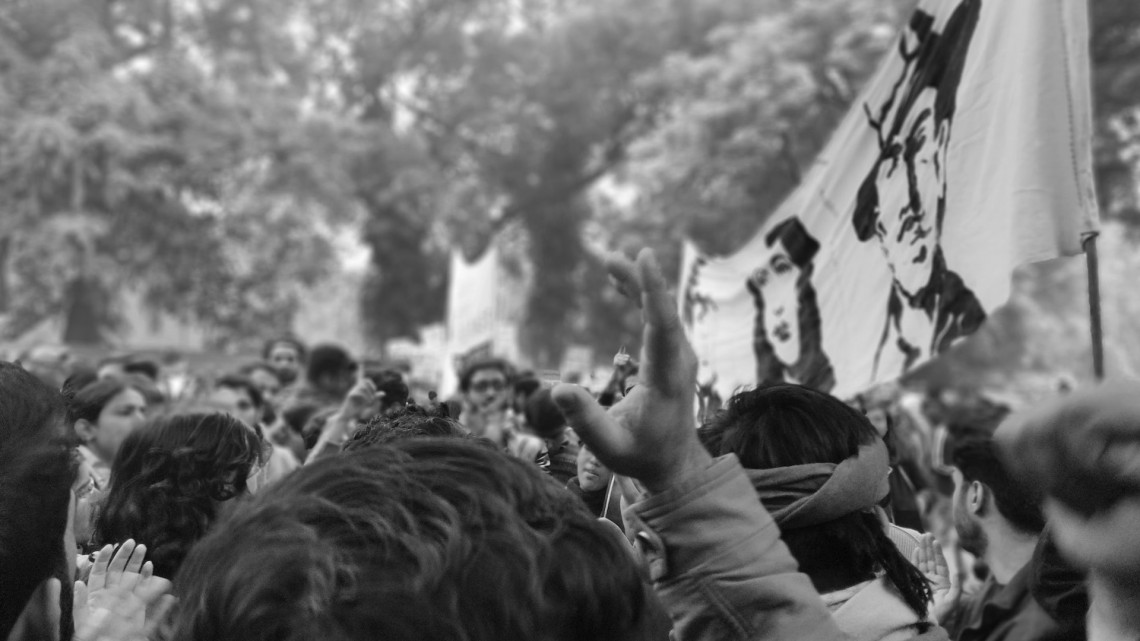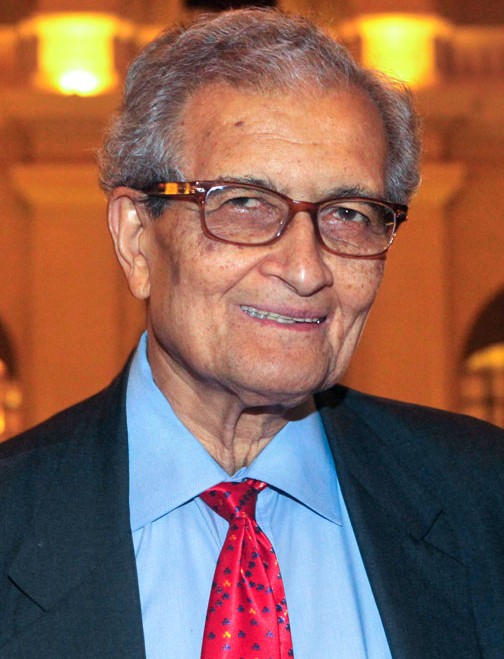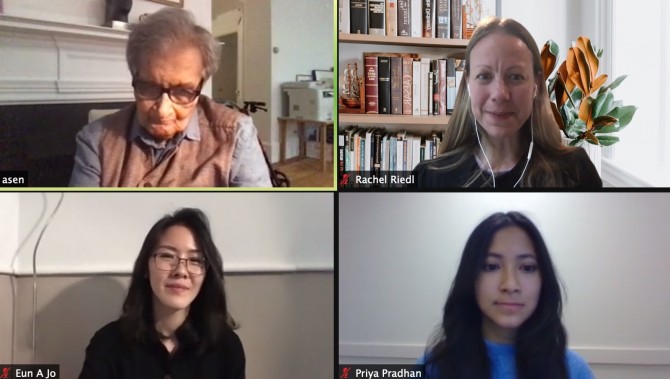
News directly from Cornell's colleges and centers
Bartels lecturer speaks out on rising threats to democracy
By Priya Pradhan
"Home may have become a dangerous place for democracy to flourish now," said Nobel prize–winning economist Amartya Sen, this year’s Bartels World Affairs Fellow.
His May 5 lecture, “Attacks on Democracy (video),” hosted by the Mario Einaudi Center for International Studies, examined the history and global patterns of democracy – from Sen's home country of India to the United States. With an eye to how democracy has changed over the past few decades, Sen argued that today, threats to democracy are internal rather than external.
Defining democracy as "government by discussion," Sen noted the disturbing rise in authoritarian tendencies in countries worldwide. "I fear I have to include my own country, India, in that unfortunate basket," he said.
While India may have been the first country to accept democracy in the non-Western world, Sen said, the rise of right-wing parties has led to internal conflicts that threaten democratic resilience. From legal eligibility afforded selectively to Hindus – but not minority groups, including Muslims – to stifling anti-government criticisms through arrests and anti-nationalist labels, Sen cited numerous instances of democratic backsliding in his home country.
Sen also touched on the past year’s unforeseen challenge – the pandemic – emphasizing the disproportionate impact of COVID-19 on the poorest across the globe.
The event was moderated by Kaushik Basu, the Carl Marks Professor of International Studies, professor of economics in the College of Arts and Sciences and member of the South Asia Program's advisory council.
The Thomas W. Lamont University Professor and professor of economics and philosophy at Harvard University, Sen is a defining thinker across several academic fields. Following prepared remarks, he engaged in discussion and Q&A with faculty representing disciplines touched by his work and Cornell students.
Robert Hockett, Edward Cornell Professor of Law, pointed out how democratic backsliding in the United States has been facilitated through the abuse of the first amendment.
Marco Battaglini, Edward H. Meyer Professor of Economics, asserted the role of social media as an exogenous shock to democracy and governance.
Rachana Kamtekar, professor of philosophy, considered the rise of “outsider” candidates and voters in South Asia who may be less likely to see democracy's intrinsic value.
Students posed questions about postcolonial governments and memory, education, and the grassroots impacts of social media.
In response, Sen described social media as a tool that has expanded the reach of our conversation, with the potential "to inform, to diffuse, to misinform, and to question." The rich conversation with Sen will continue this fall when he visits the Ithaca campus to meet in person with faculty and students at the Einaudi Center.
Priya Pradhan ’22 is a writing intern for Global Cornell. She participated in the May 5 event as a student discussant.
Media Contact
Get Cornell news delivered right to your inbox.
Subscribe




